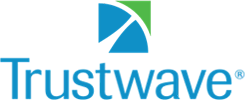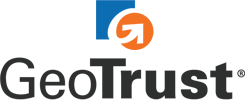-
 Comodo SSL EncryptionAll our transactions and user data are safeguarded in real time using the famous Comodo SSL Encryption.
Comodo SSL EncryptionAll our transactions and user data are safeguarded in real time using the famous Comodo SSL Encryption. -
 Strong Ddos ProtectionOur dedicated servers are protected against DDos attack thanks to our powerful DDos firewall. You are sure to access your fund 24/7.
Strong Ddos ProtectionOur dedicated servers are protected against DDos attack thanks to our powerful DDos firewall. You are sure to access your fund 24/7. -
Norton SecuredIncludes the best daily website malware scan and system will provide an early warning to you if there are any potential problems.
-
AVG Anti-MalwareBuilding industry-leading anti-malware and internet security software to keep websites safe from today's online threats.
-
Trust WaveOne of the best services that provide security information and promptly warn about threats and vulnerabilities, compliance with management technology.
-
Geo-TrustHelps identify malware strains and can assure that the site has been scanned for malware by showing a seal from GeoTrust brand.
-
Site LockAutomatically scans the website for malicious software and malware and checks for database attacks where sensitive customer information is stored.
-
D&BDevelops business relationships around the world, helping to find relevant partners, service providers and customers, cooperation with D&B adds credibility.
401(k) Loans Explained: Pros, Cons, and When to Avoid Them
If you're considering taking money from your retirement savings, a 401(k) loan might seem like an easy fix for urgent cash needs. You can often borrow quickly and repay yourself with interest, avoiding some of the hurdles that come with other loans. Yet, what seems like a straightforward decision carries consequences you might not expect—for your future finances and even your job security. How do you know if it's the right move?
How 401(k) Loans Work
A 401(k) loan allows individuals to borrow from their own retirement savings. The amount available for borrowing is limited to the lesser of $50,000 or 50% of the vested balance in the account. To secure a loan, you must submit a Loan Request Form to your plan administrator. One notable characteristic of 401(k) loans is that they do not require a credit check, distinguishing them from other types of loans such as personal loans or lines of credit.
Once you are approved for the loan, the funds are disbursed as a lump sum. Repayment involves making regular payments back to your 401(k) account with interest. The interest rate on a 401(k) loan is typically lower than that found on conventional business loans or personal loans. Importantly, the interest payments made on the loan are returned to the borrower's retirement account, which can be a consideration when evaluating the overall financial impact of borrowing against retirement savings.
It is essential to carefully consider the potential implications of taking a 401(k) loan. While it may provide immediate access to funds without the need for a credit check, borrowing from retirement savings can affect long-term financial security. If the borrower fails to repay the loan, the outstanding balance may be treated as a taxable distribution, with additional penalties applicable if the borrower is under age 59½.
Therefore, it is advisable for individuals to assess their financial situation and potential repayment capabilities before proceeding with a 401(k) loan.
Risks of Taking Out a 401(k) Loan
Taking out a 401(k) loan can appear to be a straightforward solution for acquiring funds; however, it carries several noteworthy risks that should be considered.
First, borrowing from your vested 401(k) balance diminishes the total amount available for retirement, potentially affecting your long-term investment growth. Funds withdrawn no longer benefit from tax-free growth, which could lead to a reduced retirement nest egg over time.
Additionally, if you are unable to repay the loan, the Internal Revenue Service (IRS) treats the outstanding balance as an early withdrawal. This classification could result in income taxes on the amount borrowed, as well as applicable penalties, which may further erode your retirement savings.
Furthermore, if you leave your job, the repayment terms may become more stringent. You will typically be required to repay either the total outstanding loan balance or the balance of your retirement account, whichever is less, within a specified timeframe. Failing to meet these obligations can lead to unintended tax consequences.
Given these considerations, it is prudent to carefully weigh the pros and cons of requesting a loan from your 401(k) before proceeding. An informed decision can help to mitigate potential risks associated with impacting your future financial security.
Advantages of Borrowing from a 401(k)
Utilizing a 401(k) for a loan presents several pragmatic advantages, particularly for individuals requiring quick access to funds. One significant benefit is the avoidance of income taxes and early withdrawal penalties, which can mitigate unexpected tax liabilities.
Additionally, borrowing from a 401(k) does not involve a credit check, thus maintaining the individual’s credit score, which can be impacted by other forms of borrowing such as credit cards or home equity lines.
Another consideration is the structure of repayment. Loan repayments are typically deducted directly from an individual's paycheck, simplifying the process and making it more manageable for borrowers.
Furthermore, the interest rates associated with 401(k) loans are generally lower than those found in alternative financing options, such as personal or business loans. An added feature is that the interest paid on the loan is returned to the borrower’s retirement account, thereby potentially strengthening their long-term savings.
In summary, a 401(k) loan can be a viable option for managing short-term financial needs, particularly given the low cost and straightforward repayment process associated with such borrowing. However, borrowers should remain aware of the implications that borrowing against retirement savings may have on their long-term retirement strategy.
Situations Where a 401(k) Loan May Be Appropriate
A 401(k) loan may be a viable option in situations where urgent financial needs arise and other borrowing options are less favorable. Individuals may consider this approach when faced with unexpected expenses such as medical bills, educational costs, or temporary loss of income.
One advantage of a 401(k) loan is that it does not involve a credit check, meaning it does not affect an individual's credit report. Additionally, the interest rates associated with these loans are often lower compared to traditional credit cards or home equity lines of credit.
Borrowers can take a lump sum from their 401(k) and repay the loan directly to their account, thus avoiding early withdrawal penalties that typically apply to retirement account distributions.
Nevertheless, it is important to recognize the potential drawbacks. Withdrawing funds from a retirement account can compromise long-term savings, especially if the individual leaves their job or fails to meet repayment deadlines. In such scenarios, the consequences may include taxation on the outstanding loan balance and potential penalties, ultimately impacting retirement goals.
Careful consideration and financial planning are essential when contemplating this option.
Early Withdrawals Compared to 401(k) Loans
When evaluating early withdrawals in comparison to 401(k) loans, it is important to understand the distinct financial implications associated with each option.
Early withdrawals from a 401(k) plan result in both income tax and, typically, a federal penalty, which can significantly diminish the amount available for retirement. This choice leads to a permanent reduction in retirement savings, as the funds are removed from the account without the opportunity for repayment.
In contrast, 401(k) loans allow participants to borrow against their retirement savings, often at a lower interest rate than other forms of credit. During the repayment phase, the interest paid on the loan goes back into the borrower’s own retirement account, thereby maintaining the investment potential of the original funds.
Both options have their advantages and disadvantages. Early withdrawals can provide immediate access to cash, but at the cost of long-term financial security. Conversely, loans may offer a more sustainable way to access funds while retaining the potential for growth within the retirement account.
Before making a decision, it is advisable to consult IRS regulations and pertinent resources to fully understand the implications of each choice. This careful review can help ensure informed decision-making regarding retirement savings strategies.
Alternative Options to 401(k) Loans
Before considering a 401(k) loan, it is prudent to explore alternative financial options that can safeguard your long-term retirement savings. Some viable alternatives include establishing an emergency savings fund, utilizing high-yield savings accounts, obtaining a personal loan, or accessing a home equity line of credit (HELOC).
These alternatives allow for the possibility of receiving a lump sum or utilizing a line of credit, often resulting in lower interest rates compared to credit cards or the penalties associated with early withdrawals from retirement accounts.
It is essential to weigh the potential tax implications, understand the necessary documentation, and consider repayment terms of these options.
By minimizing the amount withdrawn from your retirement plan, you protect your investments and maintain your financial objectives for retirement. Engaging in a thorough assessment of each option can lead to more informed decision-making, helping individuals avoid potential setbacks in their retirement savings strategies.
Key Considerations Before Borrowing Against Your 401(k)
Prior to considering a loan against your 401(k), it is essential to evaluate several important factors that could influence both your short-term financial situation and your long-term retirement plans.
According to IRS regulations, you are permitted to borrow a maximum of 50% of your vested account balance or $50,000, whichever amount is lower.
It is important to note that repayments are made with after-tax dollars. This means that the amount you borrow will not grow tax-deferred in your account, potentially diminishing your retirement savings over time.
Additionally, if you leave your employer, you may be required to repay the loan relatively quickly. Failure to do so can result in the outstanding balance being treated as an early withdrawal, which would incur income taxes.
Exploring alternatives is advisable. Options such as credit cards, personal loans, or home equity lines of credit may provide lower interest rates and could prevent any disruption to your retirement savings.
Thoroughly reviewing reputable sources and financial guidelines is prudent before making any decisions regarding borrowing against your 401(k).
Conclusion
Before you borrow from your 401(k), weigh the impact on your long-term savings against any immediate financial need. While a 401(k) loan can provide quick funds without a credit check, it also carries risks and potential penalties if not repaid as agreed. Explore alternatives and consider your job stability and repayment plan. Ultimately, only use a 401(k) loan when you’ve ruled out other options and can comfortably manage the repayment terms.






